How to Make Smart Food Choices: Essential Nutrition Tips
The transformation of food into energy. Good nutrition is essential for maintaining a healthy lifestyle. It is important to maintain a balanced diet that includes a variety of wholesome foods from all the major food groups. Eating healthy meals and snacks helps to fuel the body, providing essential vitamins and minerals that are necessary for growth and development. Additionally, eating a healthy diet can help to reduce the risk of developing certain diseases, such as heart disease and diabetes. By taking the time to plan balanced meals and snacks, you can ensure that you and your family get the nutrition they need to stay healthy. Please keep reading for details on the following topics:
The food pyramid guide
Fruits and vegetables
Fat
Protein
Salt
Sugars
Nutrition and pregnancy
Iron
Calcium
Vitamin D
Water
Supplements
Pasteurization

THE FOOD PYRAMID GUIDE

Recommends the following daily servings in six categories:
Grains: six or more servings
Vegetables: five servings
Fruits: two to four servings
Meat: two to three servings
Dairy: two to three servings
Fats and oils: use sparingly
FRUITS AND VEGETABLES
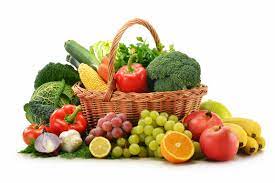
Fruits and Vegetables are a vital part of a healthy and balanced diet. They are packed full of essential nutrients, vitamins, and minerals that help to keep us feeling energized, strong, and well. Eating a variety of fruits and vegetables also helps to provide us with a range of antioxidants and phytochemicals that can help protect us from illness and disease. With so many delicious and nutritious options available, there is no excuse not to enjoy the benefits of eating fruits and vegetables every day! Characteristics of fruits and vegetables:
Help reduce the risk of chronic diseases such as heart problems, cancer, diabetes and obesity
Fruits and vegetables can be used as a snack
Overcooking vegetables can destroy valuable nutrients
Be sure to avoid eating canned foods containing added sugar and salt
FAT
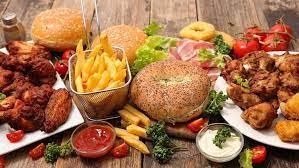
Fat is a macronutrient found in many foods and is essential for maintaining a healthy body. It provides energy and aids in the absorption of vitamins and minerals, while also helping to regulate hormones and reduce inflammation. In addition, it helps to keep us feeling full and satiated after eating, making it an important part of a balanced diet. Fat also helps to keep our skin and hair healthy and provides insulation and protection for our vital organs. Despite its importance, it is important to remember that too much of any type of fat can lead to weight gain and other health issues.
A diet rich in fat increases the risk of stroke and heart diseases
Moderate amounts of fats and oils are part of a healthy diet
Steam or boil foods instead of frying
Stay away from fried foods
Eat white meat and fish instead of red meat
SALT
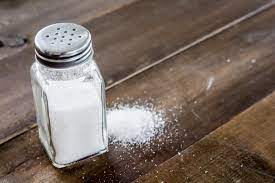
Salt is an essential mineral with a long history of use in cooking, seasoning, and preserving food. It is one of the most abundant elements on the planet and has been used for centuries to enhance the flavor of food, as well as for a variety of medicinal and religious purposes. Salt is a key ingredient in many of the world’s cuisines, and its uses are endless. From curing meats to curing headaches, salt is an invaluable resource that has been a part of human life for centuries.
Reduce the amount of salt in the diet
Choose foods and snacks with the least amount of salt
Read food labels to determine the salt content
SUGAR
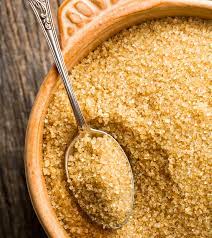
Sugar is a sweet, crystalline substance that is found naturally in many fruits and plants. It is a popular food additive found in many processed foods and drinks and has been used for centuries to sweeten food and enhance flavor. While it is commonly consumed in small amounts, too much sugar can have negative health effects, such as an increased risk of obesity and diabetes. For this reason, it is important to be aware of the amount of sugar you are consuming.
Reduce the amount of sugar incorporated in the diet
Avoid sugary foods and beverages
Substitute sweet snacks with fresh vegetables and fruits
Key facts about sugars
IRON
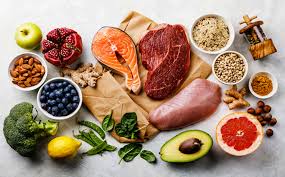
Iron is an essential nutrient found in a variety of foods that is important for maintaining a healthy diet. It helps the body create red blood cells, which carry oxygen throughout the body and help keep us energized and healthy. Iron also helps the body absorb other important nutrients, such as calcium and vitamin A. Without adequate iron intake, a person can become anemic, resulting in fatigue, poor concentration, and other health issues. Eating a balanced diet that includes foods high in iron, such as lean meats, leafy greens, beans, lentils, and fortified cereals, can help ensure that you are getting adequate amounts of this important nutrient.
27 milligrams (mg) a day
Take part in transporting oxygen throughout the body
The body requires double the amount of iron in order to cater for both the mother and baby
Sources of iron in fortified grain products, lean red meat, dark green leafy vegetables and beans, prenatal vitamins
CALCIUM
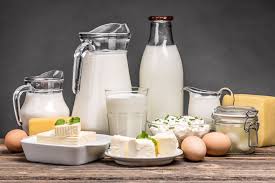
Calcium is one of the most important minerals in the human body. It helps to build strong bones and teeth and is essential for the normal functioning of muscles, nerves and heart. It also helps to regulate blood pressure and is important for many other bodily processes. Calcium is found in many foods, including dairy products, leafy green vegetables, nuts, beans, and fish. A balanced diet and regular exercise are essential for maintaining optimal calcium levels in the body.
The body requires at least 1000 mg per day
Calcium helps build up and maintain the bone density
Sources include dairy products, orange juice, fish, dark green leafy vegetables and almonds
VITAMIN D
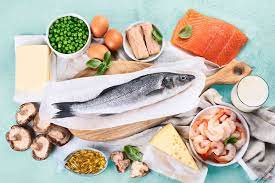
Vitamin D is an essential nutrient that plays a key role in maintaining strong bones and overall health. It is found in certain foods, as well as produced by the body when the skin is exposed to sunlight. Vitamin D helps the body absorb calcium, which is essential for healthy bones and teeth, and helps to regulate the immune system, blood pressure and cell growth. Vitamin D deficiency can lead to serious health issues, so it is important to make sure you are getting enough of this important nutrient.
Contributes to bone development
600 international units (IUs) is the recommended dose
Sources include fortified milk, fortified orange juice and fortified grain products, fatty fish, sunlight and eggs
PROTEIN
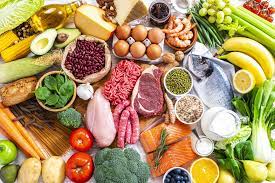
Protein is an essential macronutrient for the body, playing a vital role in maintaining and building muscle, supporting cellular health and providing energy. It is made up of small molecules called amino acids, which are linked together in a long chain. Protein is found in many different food sources, including meats, dairy products, nuts, beans and eggs. Eating a variety of protein-rich foods can help ensure that your body is getting the nutrients it needs.
Provides long-lasting energy and contributes to growth and development
Sources of protein include meat, fish, eggs, beans, soy products, nuts and nut butters
WATER

Water is essential for life and is one of the most important natural resources on Earth. It is a renewable resource and can be found in oceans, rivers, streams, lakes, and aquifers. Water is also necessary for a variety of human activities, from drinking to agriculture and industry. Water can be used to generate electricity, provide irrigation for crops, and help with sanitation and hygiene. Additionally, it is used in many of the products we consume in everyday life, from food to clothing and even medicines. Water is also essential for maintaining the delicate balance of our environment, as it helps to regulate temperatures, provides habitats for wildlife, and helps to keep our air clean.
Water helps the body function and is used to form amniotic fluid
About 8-12 cups of water daily is recommended to meet the pregnant woman’s body needs
NUTRITION AND PREGNANCY
Nutrition plays a vital role in the health of both mother and baby during pregnancy. Ensuring that a pregnant woman is consuming the right nutrients can help to promote a healthy pregnancy and a healthy baby. Eating a balanced diet that is rich in essential vitamins and minerals is an important part of maintaining good nutrition throughout pregnancy. This includes eating a variety of fruits and vegetables, as well as lean proteins, whole grains, and dairy products. Additionally, pregnant women should ensure they are getting enough fluids, including plenty of water and low-fat or fat-free milk. Taking prenatal vitamins can also help to ensure that the mother-to-be is getting the necessary nutrients for a healthy pregnancy.
Folate and folic acid 600mcg daily
Prevents abnormalities of the spine and brain
Good sources of folate include fortified grain products (cereals, bread, pasta), as well as foods like spinach, beans and asparagus
FOODS TO AVOID DURING PREGNANCY
Foods that could potentially contain bacteria or viruses
Raw or undercooked seafood such as sushi, ceviche, lox and kippers can lead to food poisoning
Raw or undercooked meat and eggs. Cook eggs until both the yolk and white are firm, and use a meat thermometer to make sure meat gets to the appropriate internal temperature
Warm hot dogs and deli meat properly because they can carry bacteria that can cause serious food poisoning
Avoid unpasteurized foods and drinks
Unwashed fruits and vegetables
High mercury content fish may affect the development of the baby’s nervous system
Drinking alcohol during pregnancy because it increases the risk of miscarriage and stillbirth
Medicines that are not approved by the doctor or midwife
PASTEURIZATION
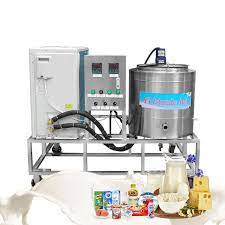
Pasteurization is a process of heat-treating foods and drinks to kill any microorganisms that could cause illness if consumed. It has been used for centuries to preserve food and drink. It involves heating a product to a specific temperature for a certain amount of time to reduce the number of microorganisms present and extend its shelf life. Pasteurization is widely used to help protect perishable liquids, such as milk and juice, from contamination and spoilage. It also helps to reduce the risk of foodborne illnesses, making it an invaluable tool for ensuring safe and nutritious food and beverages.
SUPPLEMENTS
With the growing awareness of the importance of nutrition in pregnancy, more and more women are turning to supplements to help them get the nutrients they need. Taking supplements during pregnancy can help ensure that both mom and baby are getting the vitamins and minerals they need to stay healthy and develop properly. We will cover the basics of taking supplements in pregnancy and discuss the benefits and potential risks so you can make an informed decision about what’s best for you and your baby.
SUPPLEMENTS TO TAKE WHILE BREASTFEEDING
A prenatal vitamin contains the nutrients lacking in the diet. e.g. Vegetarians and women with lactose intolerance
An iron supplement (65 mg or 325 mg ferrous sulfate) to replenish iron stores in the body
A 500-mg calcium supplement can meet a breastfeeding mom’s need for extra calcium
FOODS TO AVOID WHILE BREASTFEEDING
Alcoholic beverages which usually takes two to three hours to clear from the body
Caffeine intake
Foods linked to fussiness and allergy while breastfeeding e.g. cow’s milk, eggs, fish, citrus fruits, nuts, and wheat
NUTRITION IN DIABETICS
Eat a well-balanced diet
Watch portion sizes
Limit sugary or salty foods
Consult with a dietitian or nutritionist
Are you looking to lose weight? With the right plan and dedication, you can achieve your weight loss goals! Weight loss is a journey that requires a combination of healthy eating and exercise to be successful. There is no one-size-fits-all approach to weight loss, and it’s important to find the right solution for your body and lifestyle. This should always be a gradual process. From understanding the basics of nutrition and exercise to finding the motivation to stay on track, we will provide you with the information and support you need to reach your goals. Quick weight loss practices are very detrimental to the body.
CLICK FOR SOME HEALTHY DESERTS
Disclaimer: The information provided in this content is for general informational purposes only. It is not intended as medical or healthcare advice, diagnosis, or treatment. Always seek the advice of a qualified healthcare professional with any questions you may have regarding a medical condition or healthcare decisions.

